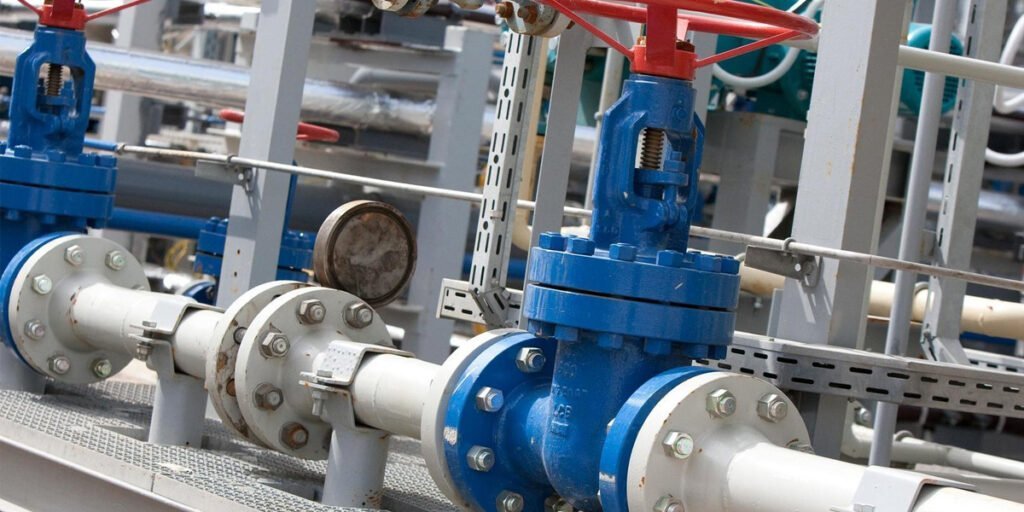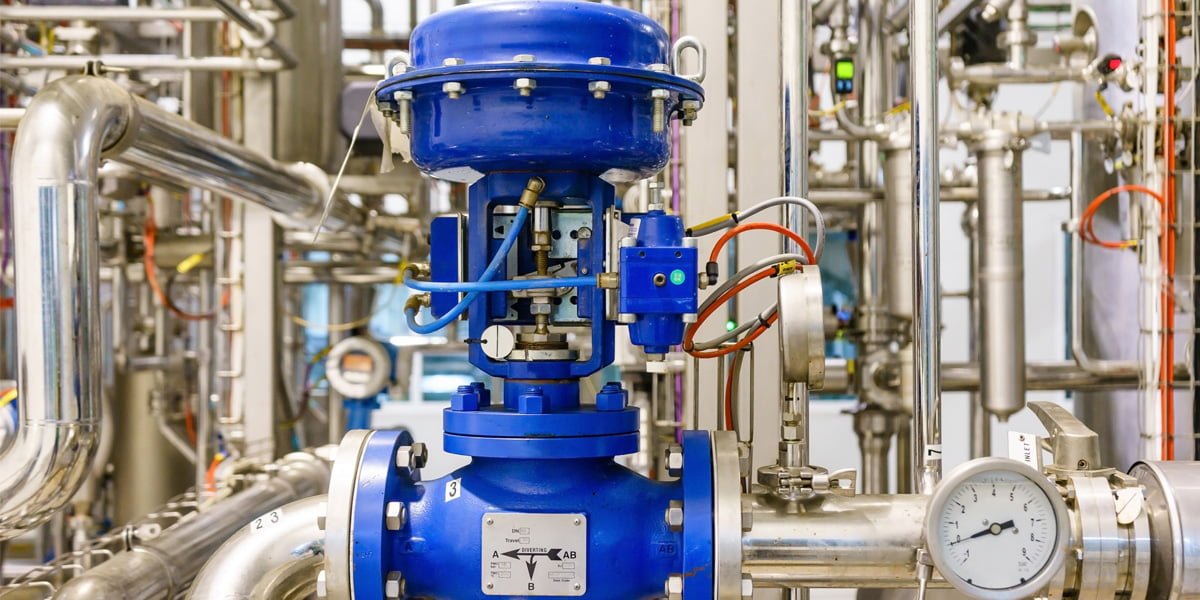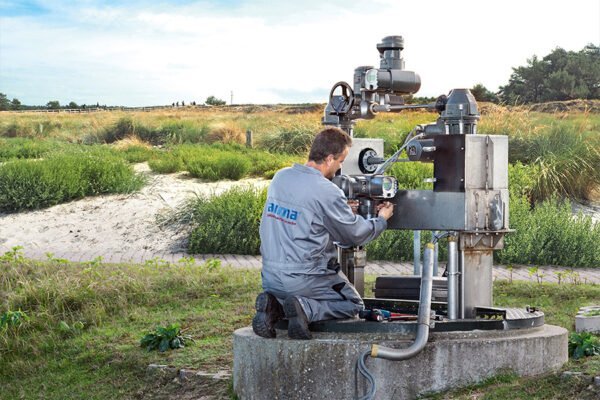Valves and actuators are crucial components in many industrial applications, playing an essential role in regulating the flow of fluids and gases. These devices control the flow of materials through pipelines and machinery, ensuring that everything operates smoothly and efficiently.
Valves come in various shapes and sizes, each designed to meet specific industrial requirements. They are used in industries such as oil and gas, chemical processing, water treatment, and pharmaceuticals. Actuators, on the other hand, are devices used to control valves’ operation. They convert energy, such as electricity, hydraulic, or pneumatic pressure, into mechanical motion to open and close valves.
Industrial valves and actuators work together to control the flow of materials, which is essential in maintaining the safety and efficiency of industrial processes. In this blog post, we’ll explore some of the industrial applications of valves and actuators and how they contribute to the smooth operation of various industries.

Oil and Gas Industry
Valves and actuators are extensively used in the oil and gas industry. They play a critical role in controlling the flow of oil, gas, and other fluids through pipelines and production facilities. In this industry, valves and actuators are used in applications such as drilling operations, refining processes, and transportation of petroleum products.
Actuators in the oil and gas industry are designed to operate under high-pressure conditions, ensuring valves can open and close quickly and reliably. Hydraulic and pneumatic actuators are commonly used in this industry because they can operate under high-pressure conditions and are more reliable than electric actuators.
Chemical Processing Industry
The chemical processing industry uses a wide variety of chemicals and materials that require careful handling to ensure the safety of workers and the environment. Valves and actuators play an essential role in regulating the flow of these chemicals through pipelines and processing equipment.
In the chemical processing industry, valves and actuators are used in applications such as mixing, blending and transporting chemicals. Valve materials used in chemical processing facilities must be carefully selected to ensure they are compatible with the chemicals being handled. Actuators used in chemical processing must be designed to operate under extreme temperatures and high-pressure conditions.
Actuators in the oil and gas industry are designed to operate under high-pressure conditions, ensuring valves can open and close quickly and reliably. Hydraulic and pneumatic actuators are commonly used in this industry because they can operate under high-pressure conditions and are more reliable than electric actuators.
Water Treatment Industry
Valves and actuators are used extensively in the water treatment industry, where they play a crucial role in controlling water flow through treatment processes. In this industry, valves and actuators are used in applications such as filtering, purifying, and disinfecting water.
Valves used in the water treatment industry must be designed to withstand exposure to water and other chemicals commonly used in water treatment processes. Actuators used in water treatment must be designed to operate under harsh environmental conditions, including exposure to water and extreme temperatures.
Pharmaceutical Industry
The pharmaceutical industry uses a variety of chemicals and materials that require careful handling to ensure product quality and patient safety. Valves and actuators play a crucial role in controlling the flow of these materials through pharmaceutical production processes.
In the pharmaceutical industry, valves and actuators are used to mix, blend, and transport pharmaceutical products. Valve materials used in pharmaceutical production facilities must be carefully selected to ensure they are compatible with the chemicals being handled. Actuators used in pharmaceutical production must be designed to operate under sterile conditions and meet the industry’s stringent regulatory requirements.
Valves used in the water treatment industry must be designed to withstand exposure to water and other chemicals commonly used in water treatment processes. Actuators used in water treatment must be designed to operate under harsh environmental conditions, including exposure to water and extreme temperatures.
After all, valve systems are indispensable for many industries
In conclusion, valves and actuators are essential components in many industrial applications, contributing to the smooth operation and safety of industrial processes. Industries such as oil and gas, chemical processing, water treatment, and pharmaceuticals rely on these devices to regulate the flow of fluids and gases through pipelines and machinery. By selecting the right valve and actuator for each application, industries can ensure that their processes run smoothly and efficiently, reducing downtime and increasing productivity.



